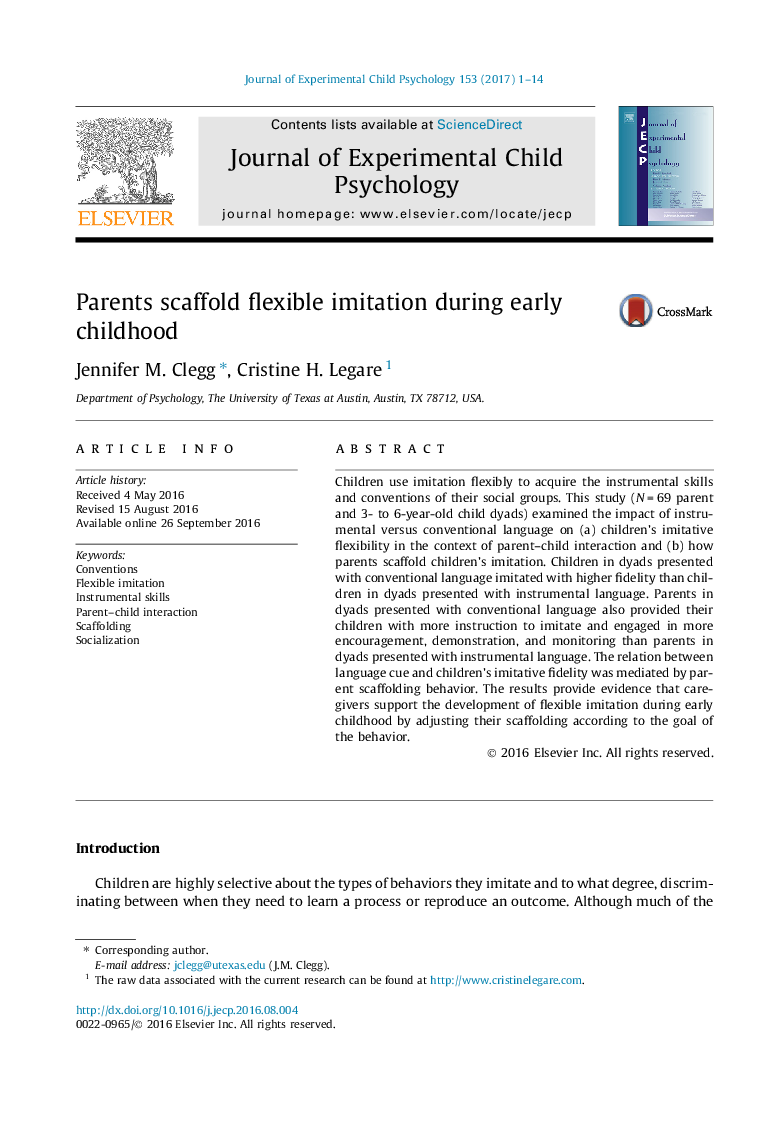| کد مقاله | کد نشریه | سال انتشار | مقاله انگلیسی | نسخه تمام متن |
|---|---|---|---|---|
| 5039999 | 1473459 | 2017 | 14 صفحه PDF | دانلود رایگان |
• Children use imitation flexibly to acquire instrumental skills and conventions.
• This study examined how parents scaffold children’s flexible imitation.
• Conventional condition – More parental encouragement, demonstration, and monitoring.
• Relation between condition and imitation is mediated by parent scaffolding.
• Results suggest that caregivers support the development of flexible imitation.
Children use imitation flexibly to acquire the instrumental skills and conventions of their social groups. This study (N = 69 parent and 3- to 6-year-old child dyads) examined the impact of instrumental versus conventional language on (a) children’s imitative flexibility in the context of parent–child interaction and (b) how parents scaffold children’s imitation. Children in dyads presented with conventional language imitated with higher fidelity than children in dyads presented with instrumental language. Parents in dyads presented with conventional language also provided their children with more instruction to imitate and engaged in more encouragement, demonstration, and monitoring than parents in dyads presented with instrumental language. The relation between language cue and children’s imitative fidelity was mediated by parent scaffolding behavior. The results provide evidence that caregivers support the development of flexible imitation during early childhood by adjusting their scaffolding according to the goal of the behavior.
Journal: Journal of Experimental Child Psychology - Volume 153, January 2017, Pages 1–14
